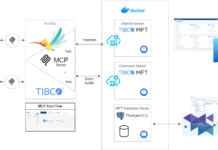
As organizations bring AI agents into customer service, operations, and productivity tools, one thing is clear : trust matters. Agents can automate routine work, answer questions and make processes faster, but only if they perform consistently. To build that trust, companies need clear testing strategies before and after deployment.
Think of testing not as a technical chore, but as a way to answer two simple business questions:
- Can I rely on this agent to get the job done?
- Will my customers feel confident using it?
Why Testing Agents is Different
Traditional software testing checks whether a button works or a formula calculates correctly. Agents, however, deal with natural language, unpredictable customer inputs, and dynamic data. That means testing needs to cover not just functionality, but also experience, accuracy, and trustworthiness.
Key Strategies for Business Leaders
1. Define Success in Business Terms
Start by asking: What outcome matters most?
- In customer support: reducing response times or boosting satisfaction.
- In operations: cutting manual work or reducing errors.
Clear success metrics make it easier to measure whether the agent is delivering value.
2. Use an Agent “Eval” Framework
A powerful way to make testing consistent is through an Agent Eval framework, a structured evaluation system that scores the agent across multiple dimensions such as:
- Accuracy: Did the agent give the right answer?
- Helpfulness: Was the response clear and useful?
- Tone and Brand Fit: Did it communicate in the right style?
- Safety and Compliance: Did it stay within policy?
By running agents through regular Eval cycles, businesses get measurable insights into where the agent is strong and where improvements are needed. Over time, this creates a clear picture of progress and ensures that updates don’t accidentally reduce quality.
3. Test Real Customer Journeys
Agents should be tested in the same way your customers or employees will actually use them. This means:
- Checking how they handle incomplete or unclear questions.
- Testing whether they can switch between tasks smoothly.
- Making sure they respond consistently across different channels (chat, voice, email).
4. Prepare for the Unexpected
Customers don’t always ask “clean” questions. They may use slang, make typos, or change their minds halfway through. Good testing (and Eval scoring) exposes agents to these situations so they can respond gracefully, rather than leaving users frustrated.
5. Keep Humans in the Loop
No matter how advanced an agent is, there will be times when it gets things wrong. Having a clear process for human takeover ensures customers aren’t stuck. Testing should confirm that handoffs to people are smooth and seamless.
6. Monitor and Improve Continuously
Unlike traditional software, agents learn and evolve. That’s why testing doesn’t stop at launch. Combining live monitoring with ongoing Eval reviews helps leaders track whether the agent continues to meet expectations over time.
7. Ensure Compliance and Responsibility
Trust is also about safety and responsibility. Testing and Evals should check that:
- Agents don’t share sensitive information.
- They stay respectful and unbiased.
- They decline requests outside of policy or ethics.
Organizations that take testing seriously, especially with structured Eval frameworks see stronger adoption of agents, higher customer satisfaction, and reduced operational risk. More importantly, they build confidence, both inside the company and with their customers, that AI is here to help, not to cause surprises.
Agents are changing the way businesses operate, but confidence in their performance is what drives real impact. By investing in thoughtful testing strategies centered on outcomes, customer journeys, and a reliable Eval system, leaders can make sure their agents deliver not just automation, but real business value.
Author:
Preeti Parameswaran
Preeti Parameswaran is part of the Product Strategy and Adoption Team at TIBCO. With a career spanning nearly two decades, she has cultivated a rich and diverse expertise that encompasses both customer-facing field roles and strategic Product Management positions. Throughout her extensive career, she has demonstrated a profound passion for complex problem-solving and an unwavering commitment to achieving customer excellence. Her enthusiasm for emerging and future technologies has been a driving force in her success, enabling her to effectively bridge the critical gap between engineering teams and business objective





